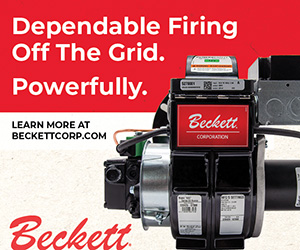
Financial
Managing Cash and Avoiding Bank Failures
By Mark E. Battersby / Published June 2023

The recent wave of bank failures has put a new focus on the security and stability of financial institutions. Even with protections in place, a bank’s failure will be disruptive, causing delays and confusion regarding access to funds, not to mention the potential impact on the funding that is so necessary to every pressure washing business.
In a recent National Small Business Association (NSBA) poll on the current state of lending following the collapse of Silicon Valley Bank (SVB), more than half of the respondents said they were unable to obtain adequate funding even prior to the SVB collapse, and a third claimed terms have become less favorable.
One solution for pressure washers facing potential problems from bank failures and dried up funding is to copy the big boys and operate an in-house treasury department dedicated to fully utilizing cash inflows and their earning potentials, borrowing for the future growth of the operation, and probably most importantly, finding funding sources that might not go under.
Avoiding Possible Bank Failures
Despite the fact that the panic from the collapse of SVB and, also, Signature Bank appears to be diminishing, the experts are suggesting that small businesses should examine their accounts to determine their level of risk and protect their deposits from the potential of future bank failures.
The Federal Deposit Insurance Corporation (FDIC) insures deposits up to $250,000, and most small businesses usually keep less money in the bank. As long as deposits are insured by the FDIC, the pressure cleaning operation’s risk is limited to inconvenience and delays.
Diversifying accounts is usually a good idea. The FDIC insures each depositor at each institution, not separate accounts at one institution. Having a second banking relationship makes it easier to quickly wire funds to safety when worries develop about one bank being unstable.
Since these protections usually come into play only after the fact (i.e., after the failure of a bank), it is much more critical that the pressure washing business owners and managers take the necessary precautions to avoid needing those protections. The safest course of action is to do your own due diligence and distribute your risk.
A typical due diligence checklist might include the following:
- Assess the overall health of the pressure washing operation’s bank
- Review the bank’s investments
- Ensure the bank participates in so-called “stress tests”
- Regularly monitor the bank for material changes, and
- Protect deposits beyond FDIC depositor protection, such as with accounts in more than one institution.
Profits From Treasury-Related Actions
All pressure cleaning business owners know how difficult managing the operation’s finances can be. Tracking profits and losses, planning future expenditures, and securing expansion capital can be challenging. One answer is treasury management, those back-office, behind-the-scenes services that enable small businesses to make and receive payments from customers through a financial services provider.
Although accounting software can usually handle day-to-day cash flow management, treasury management usually involves more. Treasury management, both in-house and via outside providers, includes managing the operation’s holdings, with the ultimate goals of managing its liquidity and minimizing potential risk.
A simple switch to electronic deposits whereever possible could improve cash management, keep deposits safer, and save time. Plus, there is faster notification of attempts to make withdrawls where there might be a lack of funds.
For some pressure washing businesses in-house treasury management might incorporate the clearing network for electronic payments, the Automated Clearing House (ACH). ACH is an efficient and economical way of making and receiving payments.
ACH payments are made by directly transfering funds from one bank to another, cutting out the use of paper checks. While it costs an average of $1.22 to process a paper check, the same payment can be processed for pennies using ACH.
Funding In Today’s Topsy-Turvy Financial Arena
Even prior to the recent scare over potential bank failures, capital was difficult for many small contractors and other businesses to access. It’s not that banks are reluctant to lend to small businesses, but rather, traditional financial institutions have outdated, labor-intensive lending processes and regulations that are often unfavorable to smaller businesses and organizations.
When funding is available, it’s generally cheaper to borrow short-term liabilities and invest in long-term assets. There is also a natural tendency for many pressure washers to stretch this funding mismatch to a limit. This can all come crashing down during market flashpoints when credit dries up and liabilities become harder to roll over—thus, the need for alternative financing.
Alternative financing refers to any method through which pressure cleaning business owners can acquire needed capital without the assistance of traditional banks. Generally, if a funding option is based entirely online, it is considered an alternative financing method. By this definition, options such as crowdfunding, online loan providers, and cryptocurrency qualify as alternative financing.
Among the reasons why a pressure washing business might turn to alternative financing are the following:
- Lower credit requirements: Traditional banks are almost certain to decline loans to borrowers with poor credit
- Faster approval: Traditional bank loans can take weeks to be approved, whereas some business loan alternatives provide access to funding in as little as one week.
- Easier qualification: Not all small business owners meet the additional requirements to apply and be approved for traditional loans. In these cases, business loan alternatives are helpful.
Online V. Brick and Mortar
Small-business lending is becoming a big business, with hundreds of millions of dollars raised from unique “platforms” such as crowdfunding, peer-to-peer lending, and marketplace lending. The entire lending marketplace is an emerging segment of the financial services industry that increasingly uses online platforms to lend directly or indirectly to consumers and small businesses.
As the needs of investors and financial services customers become more complex, there is a demand for effective tools to simplify the process. So called “digital transactions” involve constantly evolving methods where financial technology (FinTech) companies collaborate with various sectors of the economy to take advantage of new lending and capital raising opportunities.
Financial institutions are increasing the digitized services they offer while the financial marketplace competes with offerings such as peer-to-peer lending, alternative online financing, and crowdfunding. How can a pressure cleaning business take advantage of these speedy financing options while avoiding the risks associated with borrowing from so-called “shadow banks?”
Marketplace Lending
While the newer “marketplace” funding remains largely undefined, it encompasses lenders that make loans to higher-risk, lower-income borrowers; micro-finance; and larger-scale lenders that market their products to traditional consumers and small businesses. Online marketplace lending refers to the segment of the financial services industry that uses investment capital and data-driven online platforms to lend directly to small businesses and consumers.
The U.S Treasury has issued a rather broad definition for “marketplace lending,” stating that it is “the segment of the financial services industry that uses investment capital and data-driven online platforms to lend either directly or indirectly to small businesses and consumers.” They go on to say, “Companies operating in this industry tend to fall into three general categories: (1) balance sheet lenders, (2) online platforms (formerly known as ‘Peer to Peer’ or ‘P2P’), and (3) bank-affiliated online lenders.”
While the volume is tiny in comparison with traditional bank lending, marketplace lending has experienced rapid growth, with new lenders originating over $12 billion in loans. Marketplace lenders employ new, largely automated underwriting processes.
In fact, some online lenders purportedly rely on “big data” not evaluated as part of traditional bank underwriting processes. Unfortunately, there has yet to be one consistent, concise definition of what marketplace lending truly means or universal guidelines for qualifying.
Going Cashless
Fitting into the picture is the increasing trend of many countries and businesses going cashless. While a number of countries are working to make payment systems less dependent on cash, many pressure cleaning businesses that remain dependent on cash sales are finding income and profits declining.
One alternative to government-issued cash, Bitcoin, made its first appearance back in 2009, and today there are hundreds of other cryptocurrencies often referred to as Altcoins. Mainly used for large transactions, in the U.S. the IRS has ruled Bitcoin and several of its counterparts are not currencies but rather an “investment” vehicle that fluctuates in price.
Many mobile payment systems have been introduced in the past few years, including Google Wallet and Apple Pay and other mobile devices having a “digital wallet” option. However, along with the convenience and increased security issues, cashless transactions are providing another alternative to relying on traditional banks and financial institutions.
The Path to Coping With Potential Bank Failures
Although in the short term bank accounts remain safe because regulators have shown a willingness to step in when needed, the experts advise it’s probably a good idea for small businesses to diversify their funds while cementing their relationship with the operation’s banker or bankers.
Coping with the potential of a bank failure is something that should be done today. In addition to being prepared, the strategies that reduce the risk of exposure to a bank’s failure can be quite profitable for every pressure cleaning business.






